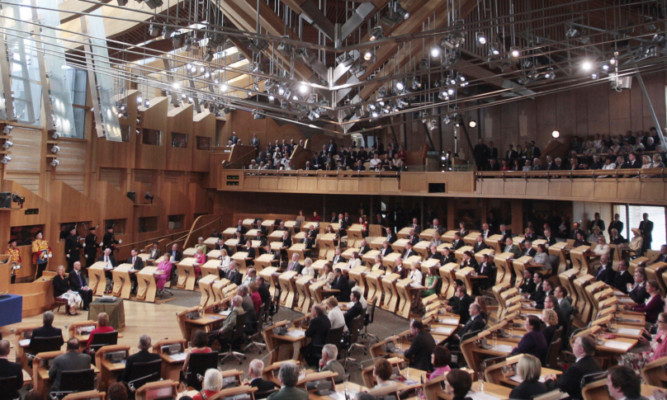SNP ministers will be bound by law to cease campaigning for independence 28 days before the referendum but UK ministers can legally promote the union until the polls close, according to experts.
The Scottish Government could expose itself to a judicial review if it makes any pronouncement related to the referendum during this period, whereas the UK Government would merely be bound by a “gentleman’s agreement” to stay silent, Holyrood’s Referendum Bill Committee heard.
The 28-day rule applies to any part of the Scottish administration, the Scottish Parliament Corporate Body and any Scottish public authority but does not cover the UK Government or authorities.
The UK Government made a commitment to observe the 28-day rule in the Edinburgh Agreement last year but any fallout for breaching this “would be more political than legal”, according to Law Society of Scotland director of law reform Michael Clancy.
In a submission to the committee, the Law Society questioned whether the UK Government would follow the same “purdah” (period of silence) rules set out in the Bill.
SNP MSP Linda Fabiani said: “Would that be a veiled suggestion that we should check up on this and perhaps, as a committee, get this in writing from the UK Government?”
The Edinburgh agreement set out the conduct of both governments during the referendum and “is very much a mutual respect and gentleman’s agreement”, she said.
Mr Clancy said: “The Edinburgh agreement does contain this (28-day) provision and it’s mentioned in the policy memorandum, so one can take that as being: if it’s under the signature of the Prime Minister with the First Minister in attendance and signing too then people understand what’s what.
“I think there is distinction between a statutory provision and something in an extra statutory agreement which people may want to flesh out.”
Speaking after the committee on Thursday, Mr Clancy told the Press Association that “there would be a breach in the law” if the Scottish Government breaks the 28-day rule.
“It means that the Scottish Government would be subject to judicial review for any breach of the statutory duty for what it had done in that respect,” he said.
“The court would be able to make an order requiring rectification of that but what it would mean in terms of this actual Bill I couldn’t predict.
“The UK Government has to act reasonably but there would be no statutory obligation on it so the consequences would be more political than legal.”
The committee also heard from a professor of politics and people from both sides of the 2011 referendum on changing the UK election system.
MSPs were advised that purdah should be extended in the terms of the referendum legislation.
William Norton, referendum agent in the No to AV campaign, said weaknesses in UK legislation have been carried over, and one significant element has been missed out from the 28-day rule.
“In the original, it would have included other organisations that aren’t public bodies which are majority funded by the taxpayer,” he said.
It was either a mistake or “someone took a decision to leave it out”, he told the committee.
The implication is that Government-funded bodies could carry on.
Mr Norton, who said the 28-day rule is too short, suggested it should be extended to a point already passed in the Scottish referendum campaign.
“I would limit it from the day one which designation occurs or doesn’t occur,” he said.
“Designation is effectively the date on which publicly recognised campaigners come into being.”
Professor Richard Wyn Jones, professor of Welsh politics and director of the Wales Governance Centre at Cardiff University, insisted the rules must apply to both sides.
“In my view, that would be a resounding yes to that,” he said.
